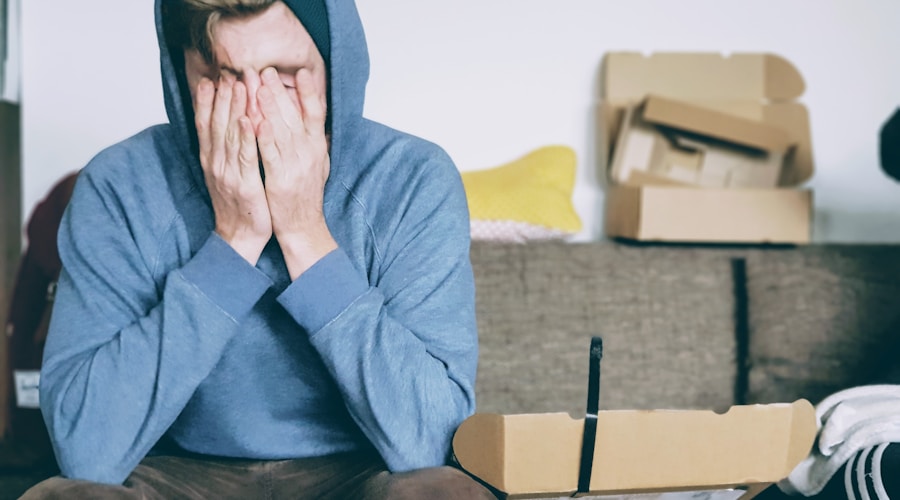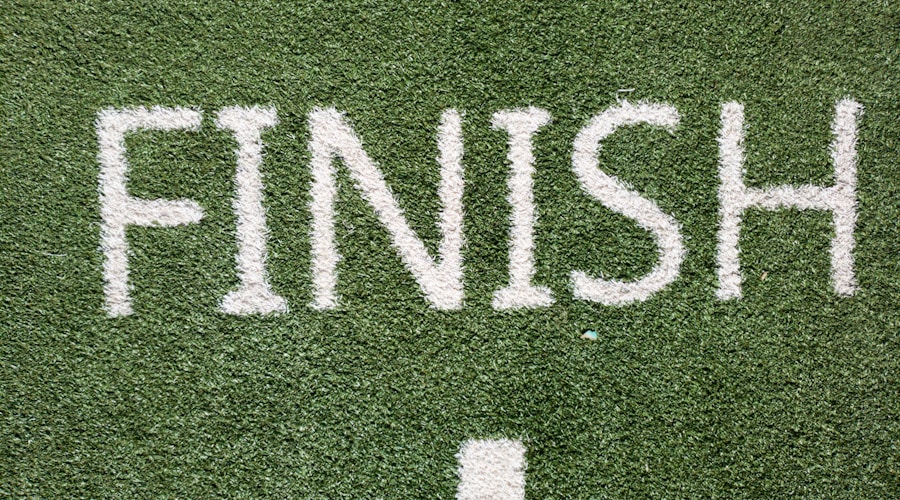Welcome to the digital age, where social media has become an integral part of our daily lives. From staying connected with friends and family to keeping up with the latest news and trends, social media offers countless benefits. However, it's important to recognize the potential downsides and take proactive steps to maintain your digital wellness.
As social media continues to evolve, it's easy to fall into the trap of spending excessive amounts of time online, leading to what is commonly referred to as social media burnout. This can have a negative impact on your mental and emotional well-being, as well as your overall productivity and happiness.
In this article, we'll explore the concept of social media burnout and provide practical tips on how to avoid it. By understanding the signs, setting healthy boundaries, and finding a balance between your digital and real life, you can ensure that your social media experience remains positive and fulfilling.
It's time to take control of your digital well-being and create a healthy relationship with social media. Let's dive in and explore how you can maintain a positive online presence without falling victim to social media burnout.
Understanding Social Media Burnout
Social media burnout is a real and common phenomenon that many people experience. It occurs when you feel overwhelmed, stressed, or emotionally drained from your social media use. This can happen when you spend excessive amounts of time on social media platforms, constantly comparing yourself to others, or feeling pressured to keep up with the never-ending stream of information and updates.
As social media continues to play a significant role in our lives, it's essential to recognize the potential negative impact it can have on your well-being. You may not even realize that you're experiencing burnout until it begins affecting your mental and emotional health.
According to clinical psychologist Dr. Christine Hyde, "Social media burnout can manifest as feelings of fatigue, cynicism, and a sense of detachment from the platform and the people on it. It can also lead to decreased satisfaction, productivity, and overall well-being."
It's important to be mindful of your social media habits and how they may be contributing to feelings of burnout. By understanding the nature of social media burnout, you can take proactive steps to prevent it from taking a toll on your mental and emotional well-being.
Recognizing the Signs
It's essential to be able to recognize the signs of social media burnout in yourself. According to psychologist Dr. Jenny Maenpaa, "The signs of social media burnout can manifest both emotionally and physically. You might find yourself feeling more anxious, irritable, or even physically fatigued after spending extended periods on social media."
Some common signs to watch out for include:
Feeling constantly overwhelmed by the pressure to keep up with your social media accounts.
Experiencing a sense of inadequacy or jealousy when comparing your life to others on social media.
Finding it difficult to disconnect from social media, even when it's causing negative emotions.
Physical symptoms such as headaches, eye strain, or disrupted sleep patterns.
If you find yourself experiencing any of these signs, it's important to acknowledge them and take steps to address them. As social media user Sarah shares, "I noticed that I was feeling really drained and dissatisfied with my own life after spending too much time on social media. It was a wakeup call for me to take a step back and reevaluate my online habits."
By recognizing these signs in yourself, you can take proactive steps to prevent social media burnout and prioritize your digital wellness.

Setting Healthy Boundaries
Setting healthy boundaries is crucial when it comes to maintaining digital wellness. It's important to establish limits on how much time you spend on social media and what kind of content you engage with. As author Dodinsky once said, "Surround yourself with people who respect your time."
When setting boundaries, it's essential to be clear about what you will and will not tolerate in your online interactions. This could mean unfollowing accounts that make you feel inadequate or anxious, or simply limiting your daily screen time. As psychologist Dr. Carla Marie Manly advises, "Create rules for yourself about when to take a break from social media and stick to them."2
Remember that it's okay to say no to things that don't serve your mental and emotional well-being. You have the power to curate your online experience and prioritize your own needs.
By establishing healthy boundaries, you can better control your social media usage and prevent burnout.
Taking Regular Breaks
In the fast-paced world of social media, it's easy to get sucked in and lose track of time. You need to take regular breaks to avoid burning out from the constant barrage of information and interactions. As digital wellness expert Dr. Elizabeth Hartney puts it, "Taking breaks is essential for maintaining a healthy balance between your digital life and your real life."
To prevent yourself from feeling overwhelmed, make it a habit to step away from your devices throughout the day. Try implementing the 20-20-20 rule - every 20 minutes, look at something 20 feet away for at least 20 seconds. This simple exercise can help reduce eye strain and give your mind a much-needed break from the screen.
Another effective method is setting specific times to check social media and sticking to them. Psychologist Dr. Jennifer Rhodes advises, "If you find yourself mindlessly scrolling, set a timer for 15 minutes and then put your phone down when it goes off. This can help you avoid getting lost in the digital abyss."
By taking regular breaks, you not only give yourself time to rest and recharge, but you also avoid the trap of falling down the rabbit hole of endless scrolling and comparing yourself to others.

Finding Balance Between Digital and Real Life
Finding balance between your digital and real life is crucial for maintaining your overall well-being. It’s about creating healthy habits that allow you to enjoy the benefits of social media without feeling overwhelmed or consumed by it.
One way to find balance is to set specific time limits for your social media usage. As author and entrepreneur Chris Guillebeau once said, “Use the internet as a tool, not as a crutch.” By setting boundaries on when and how often you access social media, you can ensure that you have time for other important aspects of your life.
Another helpful strategy is to engage in activities that don’t involve screens. Take up a hobby like painting, gardening, or playing a musical instrument. By finding joy in activities that don’t involve social media, you can reconnect with your passions and regain a sense of fulfillment beyond the digital world.
In the words of psychologist and author Amy Morin, “Finding balance is not about spending equal amounts of time on everything. It’s about making time for what’s important to you.” This means making deliberate choices about how you spend your time, ensuring that both your digital and real life pursuits align with your values and goals.
Remember, finding balance doesn’t mean completely disconnecting from social media. It means integrating it into your life in a way that complements, rather than overwhelms, your overall well-being.
Exploring Alternative Activities
When you find yourself spending too much time on social media, it's important to explore alternative activities that can bring joy and fulfillment to your life. This can help you break the cycle of social media burnout and rediscover activities that bring you genuine happiness.
Instead of constantly scrolling through your social media feeds, consider engaging in hobbies or activities that you truly enjoy. Whether it's reading a book, going for a nature walk, or learning a new skill, finding alternative activities can provide a much-needed break from the digital realm. As author Annie Dillard once said, "How we spend our days is, of course, how we spend our lives."
Engaging in activities that bring you joy can also help to cultivate mindfulness and presence in the present moment. As mindfulness expert Thich Nhat Hanh suggests, "Sometimes your joy is the source of your smile, but sometimes your smile can be the source of your joy."
In addition to hobbies, consider spending quality time with friends and loved ones. Building and nurturing real-life connections can offer a sense of fulfillment and support that social media interactions may not provide.
By exploring alternative activities, you can regain a sense of balance and fulfillment in your life, helping you to avoid social media burnout and promote your overall digital wellness.

Seeking Help When Needed
It's okay to ask for help when you're feeling overwhelmed by social media. Remember, seeking support is a sign of strength. If you find that social media burnout is affecting your mental health and well-being, don't hesitate to reach out to someone you trust. A friend, family member, or mental health professional can offer valuable support and guidance.
Don't be afraid to lean on others for help. As author Brené Brown wisely said, "owning our story and loving ourselves through that process is the bravest thing that we'll ever do."
If you're struggling to manage your social media use and it's impacting your daily life, consider seeking professional help. A therapist or counselor can provide you with strategies to manage social media burnout and improve your digital wellness.
As therapist Dr. Kristen Fuller notes, "seeking help is not a sign of weakness, but rather a sign of courage and strength. Taking the first step towards change is often the most difficult, but it can lead to positive transformation and growth."
Remember, it's important to prioritize your mental health. Seeking help when you need it is a crucial step in combating social media burnout and reclaiming balance in your life. You deserve to feel happy and healthy, both online and offline.
Conclusion
In this fast-paced digital age, it's essential to prioritize your mental and emotional well-being. Remember that it's okay to take a step back and reevaluate your relationship with social media. As author Ryan Nicodemus wisely said, "The quality of your life is in direct proportion to the quality of your relationships."
By recognizing the signs of social media burnout, setting healthy boundaries, and taking regular breaks, you're already taking positive steps towards maintaining your digital wellness. It's crucial to find a balance between your online and offline life to avoid feeling overwhelmed and exhausted.
Exploring alternative activities and seeking help when needed are also important aspects of practicing digital wellness. As you navigate through the ever-changing landscape of social media, remember to prioritize your mental health and seek support from friends, family, or professionals if you find yourself struggling.
Incorporating these strategies into your daily life can help you navigate the digital world without experiencing burnout. Remember, your well-being is the most important thing, and taking care of yourself should always be a top priority.

2Dodinsky, In the Garden of Thoughts (2013)
3Dr. Carla Marie Manly, Joy from Fear: Create the Life of Your Dreams by Making Fear Your Friend (2019)
4Elizabeth Hartney, "Digital Wellness: A Guide to Navigating Life in the Digital Age" (2019)
5Jennifer Rhodes, "The Psychology of Social Media: Understanding the Impact on Mental Health" (2020)
6Chris Guillebeau, The Art of Non-Conformity (2010)
7Amy Morin, 13 Things Mentally Strong People Don’t Do (2014)
8Annie Dillard, The Writing Life (1989)
9Thich Nhat Hanh, The Miracle of Mindfulness (1999)
10Kristen Fuller, M.D., "Mental Health 101" (2019)
11Ryan Nicodemus, Love People Use Things (2021)